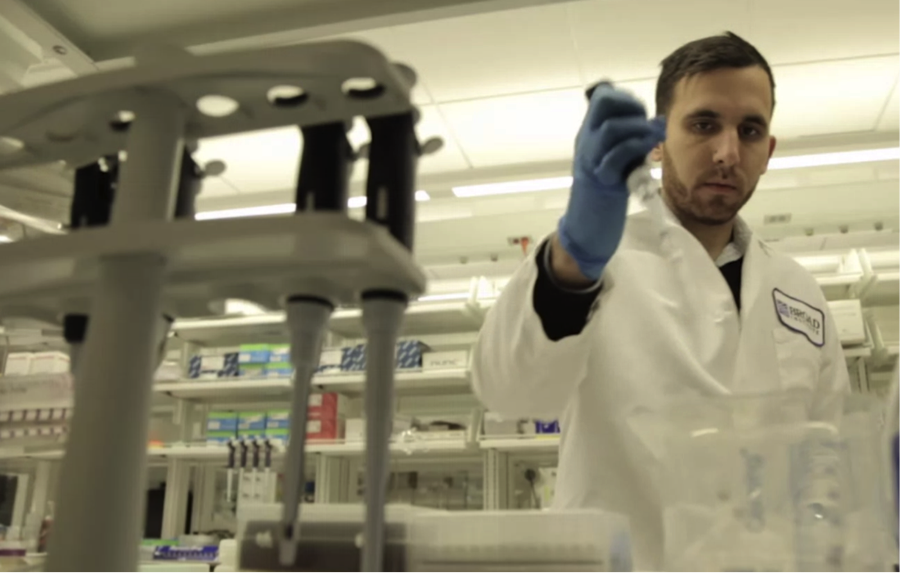Bridging Gaps in Biotechnology, From High School to College

Three years after Enrique García-Rivera left his home school in Puerto Rico for an Amgen Scholars summer at the University of California, San Francisco, he found himself in an unexpected place: He was coaching a high school biotechnology club in Massachusetts, helping them with the Genes in Space challenge for NASA. He walked the teenagers through different types of DNA reactions that could theoretically be altered by zero-gravity.
“It was awesome to see kids that young be inspired by science,” García-Rivera recalls. Working with the science club was not the first time he had worked with high schools. He had also participated in a workshop for a couple dozen teachers, where he presented some of his research from Amgen Scholars through to his graduate work at Harvard Medical School. “It was great interacting with them and getting a chance to show them an alternative path to higher education like mine,” he says.
This volunteer work was all the result of García-Rivera volunteering for the Amgen Biotech Experience (ABE). While many Amgen Scholars get their first exposure to real-world scientific research as undergraduates, increasing numbers of students are getting that experience in high school through ABE.
Some 600,000 high school students have already participated, and the Amgen Foundation, which funds the effort, aims to reach 300,000 more students by 2020. In the last year, the program has expanded to 9 more regions (Australia, Canada, China, France, Germany, Hong Kong SAR, Italy, Netherlands and Singapore) with a new $10.5 million investment.
“Our expansion into the Asia Pacific and new sites in Europe represents the expanding opportunities for biotechnology worldwide,” says Rebecca Lewis, director of the ABE Program Office. “Between ABE and Amgen Scholars, the Amgen Foundation is providing a continuum of hands-on biotech experiences to help prepare the next generations of scientists.”
Reports from the U.S. National Research Council (NRC) in 2005 and 2012 on K-12 science education highlight the need for effective lab experiences to help students develop scientific skills and reasoning practices, as well as to foster their interest in scientific careers. The reports also indicate that the quality of lab experiences is poor for most students. A recent study commissioned by the Amgen Foundation echoes those findings, showing that students, teachers, and industry professionals alike want biology education to better represent up-to-date scientific knowledge and research. ABE is working to bridge that gap.
“I think ABE is an important part of teaching the rising youth that biotechnology is driven first and foremost by science,” García-Rivera says. “I have high regards for both ABE and Amgen Scholars, given it was my first foray into biotechnology.”
García-Rivera now works at a deep-learning startup focused exclusively on solving problems in the life sciences. The biggest value he brings, he says, is his biomedical expertise, which many machine-learning companies lack or take for granted. “We work with many players in biotech and pharma, and my previous experiences, including Amgen Scholars and ABE, have positioned me well to thrive in this environment,” he says.
Interested in volunteering for ABE? Any interested Amgen Scholars alumni should contact: ABEInfo@edc.org

